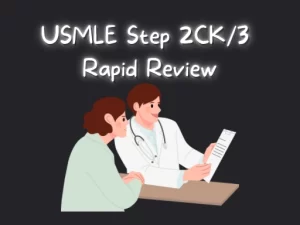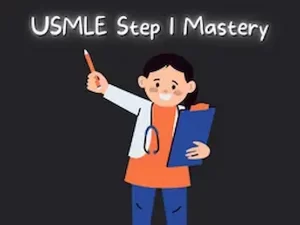Crafting a compelling personal statement for the USMLE (United States Medical Licensing Examination) is a critical part of your application process. The personal statement allows you to showcase your skills, experiences, and motivations, setting you apart from other candidates. Understanding the USMLE personal statement do’s and don’ts is essential for presenting yourself in the best light. In this blog, we’ll explore both the right approaches and the common mistakes to avoid, ensuring your personal statement makes a lasting impression. By following these USMLE personal statement do’s and don’ts, you can create a statement that highlights your strengths and presents a clear, authentic picture of who you are as a future medical professional.
Do’s for Your USMLE Personal Statement
Your USMLE personal statement do’s and don’ts guide will focus on the things you should include to stand out in the competitive field of medicine. These key dos will help you structure your personal statement to show the admissions committee that you’re a strong candidate with genuine passion and potential for a career in medicine.
Do Start Early
Starting your personal statement early is one of the most important Do’s for Your USMLE personal statement. This gives you time to reflect on your experiences, draft multiple versions, and fine-tune your writing. Starting early also provides the opportunity to gather feedback from peers, mentors, and advisors, allowing you to revise and improve your statement. This is critical because a rushed personal statement can appear unpolished and lack the thoughtful reflection that admissions committees value. Setting aside ample time to craft your personal statement can result in a well-thought-out narrative that effectively highlights your strengths.
Do Highlight Your Unique Experiences
When writing your USMLE personal statement do’s and don’ts, it’s crucial to highlight your unique experiences. These experiences can differentiate you from other applicants and provide insight into your personal and professional growth. Whether it’s a memorable patient interaction, research project, volunteer work, or something that sparked your interest in medicine, emphasizing these experiences can make your statement stand out. The USMLE personal statement do’s and don’ts suggest that applicants share personal stories that reflect their unique journey, demonstrating qualities such as empathy, resilience, and dedication to the medical field.
Do Reflect on Your Motivations
Reflecting on your motivations for pursuing medicine is another key element of the Do’s for Your USMLE Personal Statement. Admissions committees want to know why you want to become a doctor and what drives your passion. By explaining your motivations, you not only help them understand your personal connection to the field, but you also showcase your long-term commitment. Share why the challenges and rewards of a medical career excite you, and how these motivations shape your goals as a future physician.
Do Show Self-Awareness and Growth
In your personal statement, showing self-awareness and growth can provide powerful insights into your character. The USMLE personal statement do’s and don’ts encourage applicants to reflect on how they have developed over time, particularly in response to challenges and new experiences. Demonstrating how you have learned from setbacks or how specific experiences have shaped your values will give the admissions committee a deeper understanding of your potential as a future doctor.
Do Tailor Your Statement to the Program
It’s essential to tailor your personal statement to the specific program or school to which you’re applying. By researching the institution and understanding its values, you can align your personal statement with what they’re looking for. Whether it’s a particular focus on research, community health, or a clinical approach, showing how your experiences align with the program’s philosophy demonstrates that you’ve thoughtfully considered why that particular school is the right fit for you.
Do Be Honest and Authentic
One of the most important USMLE personal statement do’s and don’ts is to always be honest and authentic. Trying to impress the reader with exaggerated claims or artificial personality traits can backfire. Authenticity is valued, and admissions committees can usually tell when a statement doesn’t reflect the true you. Share your real experiences and feelings, and don’t try to write what you think the committee wants to hear. A genuine, heartfelt personal statement is much more impactful than one that feels scripted.
Do Use Clear and Concise Language
Your USMLE personal statement do’s and don’ts should include using clear and concise language. Avoid overly complex sentences and unnecessary jargon. The goal is to communicate your message effectively and make it easy for the reader to understand your experiences and goals. Admissions committees review many personal statements, so clarity and conciseness help ensure yours doesn’t get lost in the shuffle. Keep your writing straightforward and focused, making each word count.
Do Proofread and Edit
Proofreading and editing are essential Do’s for Your USMLE personal statement. After you’ve written your draft, take the time to review it multiple times. Look for grammar mistakes, awkward phrasing, and ensure the flow of your narrative is smooth. You might also consider asking a friend or mentor to review your statement for feedback. An error-free, well-structured statement makes a more professional impression and shows you’ve put effort into crafting a polished application.
Don’ts for Your USMLE Personal Statement
While it’s important to focus on the dos of writing a personal statement, it’s equally important to avoid common mistakes. Here are the USMLE personal statement do’s and don’ts that focus on things to avoid:
Don’t Rehash Your CV
The Don’ts for Your USMLE personal statement stress that you should not simply restate your CV or resume. Admissions committees are already familiar with your qualifications and accomplishments through other parts of your application. Instead of listing achievements, focus on explaining the significance of these experiences and how they shaped your path toward medicine. A personal statement should reflect your story, not just a summary of your resume.
Don’t Use Clichés and Generic Statements
Avoid clichés and generic statements in your personal statement. The USMLE personal statement do’s and don’ts highlight that using overused phrases like “I’ve always wanted to be a doctor” can make your application blend in with many others. Instead, focus on specific examples and unique experiences that truly reflect your journey and motivations. Originality helps your statement stand out and shows that you’ve put thought into your words.
Don’t Exaggerate or Fabricate
Exaggerating your experiences or fabricating stories is one of the biggest mistakes you can make in your personal statement. The USMLE personal statement do’s and don’ts warn against making claims that you can’t back up or embellishing your experiences. Admissions committees value honesty, and if you’re caught in a lie, it can harm your application and your reputation. Stick to the truth and be authentic about your experiences and goals.
Don’t Overuse Medical Jargon
While it’s important to demonstrate your knowledge of medicine, the USMLE personal statement do’s and don’ts suggest that you should avoid overusing technical medical terms and jargon. Your personal statement should be understandable to someone who may not have the same background in medicine, so clarity is essential. Keep your language simple and focused on conveying your experiences and motivations, rather than showcasing your technical knowledge.
Don’t Ignore the Word Limit
Following the word limit is a fundamental aspect of the USMLE personal statement do’s and don’ts. Many applicants struggle with brevity, but ignoring the word limit can make you seem careless or disrespectful of the guidelines. Make sure your personal statement fits within the required word count and avoids unnecessary fluff. Concise writing demonstrates your ability to communicate effectively, which is a key skill for a medical professional.
Don’t Be Negative
One of the USMLE personal statement do’s and don’ts is to avoid being negative or overly critical. A personal statement is your chance to present the best version of yourself, so focus on the positive aspects of your journey. If you discuss challenges or setbacks, emphasize what you learned from them and how they helped you grow. Negative language can make your statement seem less compelling and can leave a bad impression.
Don’t Use Humor Inappropriately
Humor can be tricky in a personal statement. The USMLE personal statement do’s and don’ts suggest that humor should be used cautiously, as it may not always convey the right tone. While a well-placed humorous anecdote might make your statement more memorable, using humor inappropriately can come off as unprofessional. Focus on seriousness and sincerity, as your personal statement should highlight your dedication to medicine.
Don’t Forget to Explain Gaps or Weaknesses
If there are gaps in your education or weaknesses in your application, the USMLE personal statement do’s and don’ts recommend addressing them in your personal statement. Failing to explain these aspects can raise red flags for the admissions committee. Be honest about any challenges, and explain how you’ve worked to overcome them. Providing context can help the committee understand your growth and dedication.
Crafting a Strong Personal Statement: Example Outline
A strong personal statement follows a clear structure that addresses your motivations, experiences, and goals. Here’s a simple outline:
- Introduction: Start with an engaging story or statement about why you chose medicine.
- Body Paragraphs: Highlight unique experiences, reflect on your motivations, and show personal growth.
- Conclusion: Tie everything together, emphasizing your commitment to becoming a doctor.
This structure will help you stay focused and create a cohesive, powerful personal statement.
Why May Your Personal Statements Be Important?
Your personal statement is important because it allows admissions committees to understand who you are beyond your grades and test scores. It’s a way for you to demonstrate your passion for medicine, explain your career goals, and showcase your unique experiences. By writing a strong personal statement, you can increase your chances of standing out and securing a spot in the competitive field of medicine.
How to Write a Good PS?
Writing a good personal statement involves reflecting on your experiences, being honest and authentic, and avoiding unnecessary jargon. Start by brainstorming your motivations, significant experiences, and lessons learned. Organize these thoughts into a clear structure, starting with an engaging introduction, followed by a body that elaborates on your unique qualities, and ending with a strong conclusion. Proofread and revise your statement multiple times to ensure clarity and professionalism.
The Personal Statement is an Opportunity
The personal statement is a crucial opportunity to showcase your personality, motivation, and unique experiences beyond test scores and grades. Admissions committees seek authenticity, strong storytelling, and a clear passion for medicine. Key strategies include:
- Compelling Narrative: Use real-life experiences to highlight qualities like empathy, resilience, and leadership.
- Unique Perspective: Stand out by sharing a distinctive journey or perspective.
- Strong Structure: Organize with a clear introduction, body, and conclusion.
- Authenticity Matters: Avoid generic statements—make it personal and impactful.
Conclusion
Crafting a strong USMLE personal statement is essential for making a positive impression on the admissions committee. By following the USMLE personal statement do’s and don’ts, you can create a thoughtful, well-written statement that highlights your unique experiences, motivations, and commitment to the field of medicine. Avoid common mistakes, stay authentic, and be sure to showcase your passion for becoming a physician. A well-crafted personal statement can be a key factor in securing your spot in medical school.
Best of luck with your residency applications! If you have any questions or need guidance, we at USMLE Strike are here to support you. Feel free to reach out anytime!





